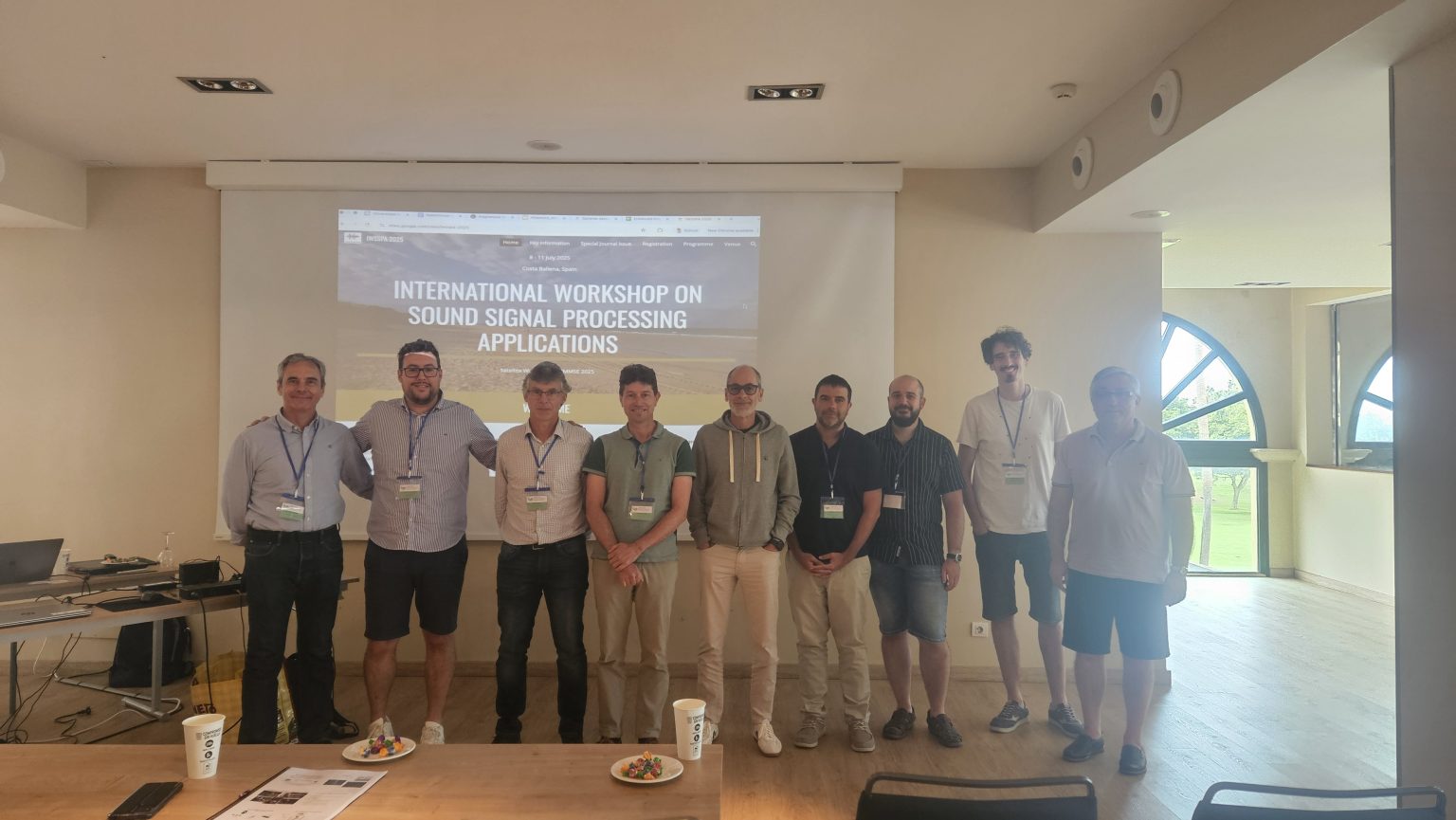In July 2025, the International Workshop on Sound Signal Processing Applications (IWSSPA) was successfully held in Rota, Spain, bringing together researchers, engineers, and practitioners from around the world to explore the latest advancements in sound signal processing and its diverse applications. The workshop was supported by several sponsors, including REPERTORIUM, which helped make possible this international exchange of ideas and innovations.
IWSSPA 2025 provided a dynamic forum for knowledge exchange, featuring oral presentations and in-depth discussions on emerging technologies and methodologies. The topics addressed ranged from audio signal processing, speech recognition and music information retrieval to acoustic scene analysis, machine learning for audio and immersive technologies such as virtual and augmented reality.
A wide variety of high-quality research contributions were presented, showcasing both theoretical progress and practical implementations. Highlights included studies on measuring the spatial acoustics of historic violin concert halls, deep learning for acoustic beamforming, music source separation analysis, active noise equalization and perceptually motivated loss functions for orchestral recordings, among others.
The workshop fostered fruitful exchanges between participants and promoted new collaborations across academia and industry. By addressing both fundamental research challenges and applied innovations, IWSSPA 2025 reaffirmed the relevance of sound signal processing in fields such as education, entertainment and human-computer interaction.
The Book of Abstracts of IWSSPA 2025 is available at DOI: https://doi.org/10.5281/zenodo.16790182





